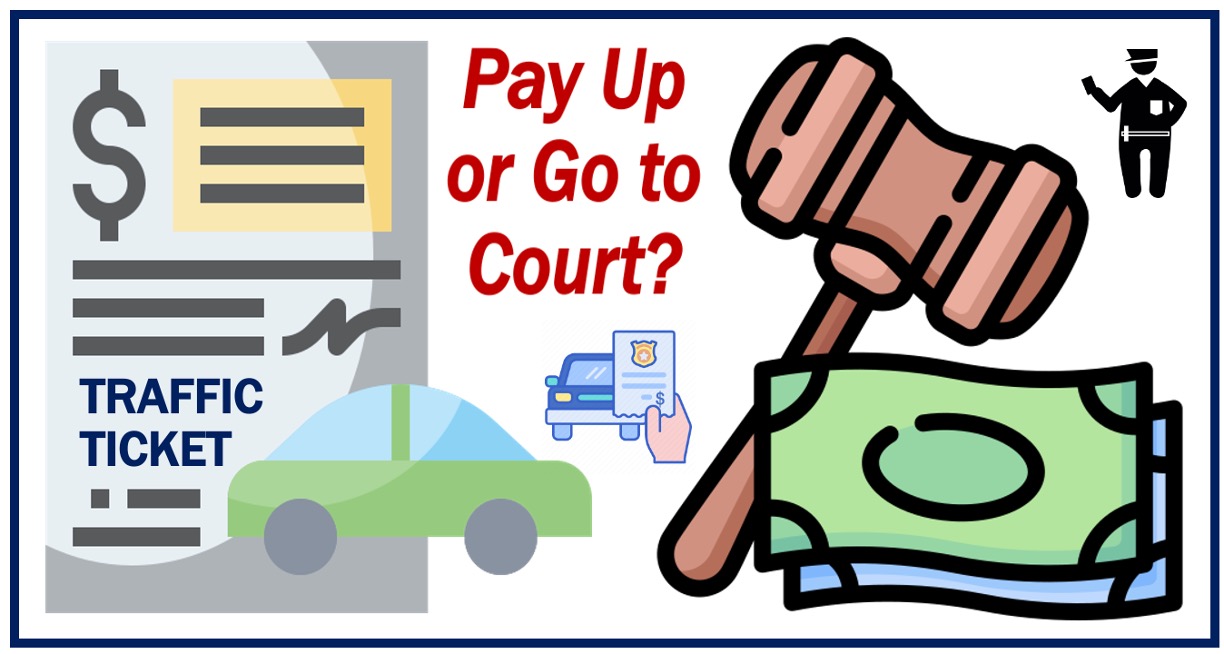After getting a traffic ticket, you must decide whether to go to court or pay the traffic fine. Both decisions have desirable or undesirable outcomes depending on the situation’s circumstances.
Some factors that greatly influence your decision are existing points on your license, the proposed fine, and your insurance premiums.

After weighing your options, you should contact a lawyer who will equally assess the situation and advise on the way forward. If the fine is on the higher side, your insurance costs could increase.
On the other hand, going to court could have life-changing outcomes as the court’s decisions are unpredictable. That said, how do you determine the best defense for your traffic ticket or whether to simply pay the ticket? Read on to find out.
To Pay or Not To Pay
Most drivers prefer to settle the stated bill to avoid the time and energy spent in court trying to fight tickets. Moreover, you will be forced to hire a traffic attorney by going to court. With this in mind, it may be exhausting and time-consuming to fight a ticket.
Similarly, if you are a first-time offender, it may be wise to pay for the ticket and get done with it once and for all. You might opt for traffic school if you wish to maintain a clean record. Consequently, if you do not have sufficient funds, you may ask for the available payment plans.
The downside to paying the ticket is the impact on your insurance policy. Depending on the violation, a traffic ticket like a hit and run could increase car insurance costs by nearly 82 percent. Other violations like DUI and reckless driving also raise the insurance rates by 73.9 percent and 70.4 percent, respectively.
Fighting a Traffic Ticket
If you opt to fight a traffic ticket, you need to familiarize yourself with defenses that could work in your favor and those that could fail. Remember that traffic police officers are generally good at pointing out the violated rules.
However, if the officer does not show up during the hearing, you automatically win the case, and the ticket is dismissed.
Here are some commonly used defense strategies:
- Prove that the violation prevented harm: With this defense, you will prove that committing the traffic violation during an emergency was necessary to avoid greater harm.
- Challenge the officer’s observations and eventual conclusion: Fighting a traffic ticket is not an issue of your word against the officer’s. Instead, state that factors like their position might have influenced their decisions. Similarly, try to show the court that the officer’s conclusion was unreasonable.
- Prove that the violation was a mistake: The judge might dismiss your ticket if you show that you made an honest and reasonable error. This is called the “mistake of fact” defense.
There is no guarantee that these strategies will get your ticket dismissed. However, they could lower the fine.
Unfortunately, offenders can proceed to court and still lose the case. Such drivers often give absurd excuses like rushing to work or missing traffic signs. These defenses rarely work, and the driver is likely to lose.
Key Takeaways
Depending on the violation, paying the ticket or fighting it could have unforeseen consequences. In any case, hire a traffic lawyer, especially if you intend to fight the ticket. They will help gather the evidence and witnesses that will strengthen your defense.

